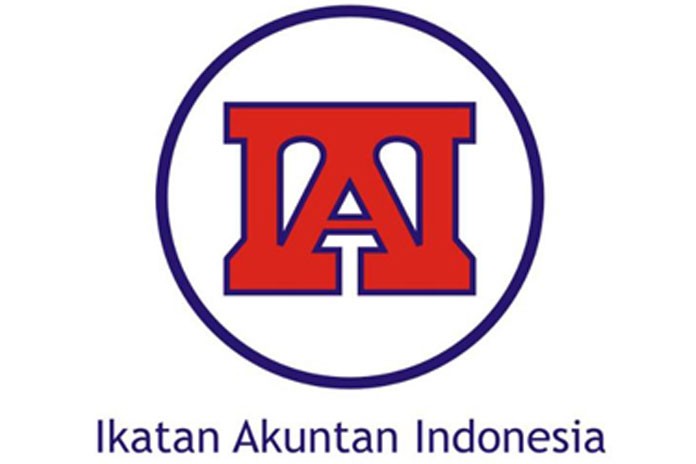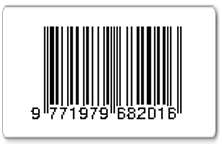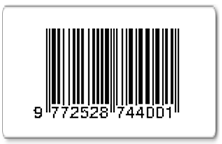Level of Bank Health, Growth Rate and Banking Value in Indonesia
Abstract
This study aims to explore the soundness, growth rate and value of banking in Indonesia. This study also compares the level of soundness, growth rate and value of Islamic banks and conventional banks. This research is interesting and important to do, because as a country with the largest Muslim population in the world, the Islamic banking sector is the main solution to help the economy in an Islamic way. However, the use of Islamic banking services by the public is still not optimal. Meanwhile, Islamic banks are proven to be able to survive the global economic crisis. The motivation underlying this research is that different perspectives in the management of the two types of banks affect the level of bank resilience in facing the crisis. It is proven that when there is a global crisis, Islamic banks are more resistant to testing and survive. This study examines the development of corporate governance in an in-depth Islamic perspective for Islamic commercial banks and compares it with corporate governance in conventional banks. The Islamic context in doing business is very different from the conventional business context. Therefore, it needs to be developed separately based on the concepts of monotheism. The research provides input for the development of models for the application of Islamic Corporate Governance. Another benefit in this study is the level of public acceptance of Islamic banking services, which are carried out. The research output is an empirical model for developing the Islamic Corporate Governance index. The research provides additional input for similar research that are still theoretically reviewing.
Keywords
Full Text:
PDFReferences
Abdul_Baki, Z., Uthman, Ah. B., Olanrewaju, A. Al., & Ibrahim, S. A. (2013). Islamic perspective of management accounting decision making techniques. Journal of Islamic Accounting and Business Research, 4(2), 203–219. https://doi.org/10.1108/JIABR-05-2012-0031
Abdullah, W. A. W., Percy, M., & Stewart, J. (2013). Shari’ah disclosures in Malaysian and Indonesian Islamic banks The Shari’ah governance system. Journal of Islamic Accounting and Business Research, 4(2), 100–131. https://doi.org/10.1108/JIABR-10-2012-0063
Ahmed, M. U., Sabirzyanov, R., & Rosman, R. (2016). A critique on accounting for murabaha contract A comparative analysis of IFRS and AAOIFI accounting standards. Journal of Islamic Accounting and Business Research, 7(3), 190–201. https://doi.org/10.1108/JIABR-04-2016-0041
Al-kdai, H. K. H. (2013). Corporate Governance Characteristics and the Quality of Accounting Information in Malaysian Shariah- Compliant Listed Companies Faculty of Economics and Muamalat Administration.
Arafat, Wilson. 2010. Good Corporate Governnace Pedoman Komprehensif Mengukur Kinerja
Asriati, R., Ulfah, P., & Setyorini, C. T. (2016). Analisis Perbandingan Komponen Islamic Social Reporting (ISR) Pada Bank Syariah Antara Negara Indonesia dan Malaysia. In SImposium Nasional Akuntansi XIX (pp. 1–24).
Atmeh, M. A., & Maali, B. (2017). An accounting perspective on the use of combined contracts and donations in Islamic financial transactions. Journal of Islamic Accounting and Business Research, 8 (1), 54–69. https://doi.org/10.1108/JIABR-07-2014-0024
Baird, M. 2000. The Proper Governance of Companies Will Become as Crucial to the World Economy as the Proper Governing of Countries. Paper.
Chattha, J. A., & Archer, S. (2016). resilience Solvency stress testing of Islamic commercial banks Assessing the stability and resilience. Journal of Islamic Accounting and Business Research, 7(2), 112–147. https://doi.org/10.1108/JIABR-09-2014-0031
Effendi, Muh. Arief. 2009. The Power Of Corporate Governance: Teori dan Implementasi. Jakarta: Salemba Empat
Farooq, O., & AbdelBari, A. (2015). Earnings management behaviour of Shariah-compliant firms and non-Shariah-compliant firms Evidence from the MENA region. Journal of Islamic Accounting and Business Research, 6(2), 173–188. https://doi.org/10.1108/JIABR-07-2013-0021
Farooq, O., & Alahkam, A. (2016). Performance of shariah-compliant firms and non-shariah-compliant firms in the MENA region Which is better? Journal of Islamic Accounting and Business Research, 7(4), 268–281. https://doi.org/10.1108/JIABR-10-2013-0039
Gharbi, L., & Khamoussi, H. (2016). Fair value and banking contagion Empirical evidence from Islamic and conventional banking sectors in GCC region. Journal of Islamic Accounting and Business Research, 7(3), 215–236. https://doi.org/10.1108/JIABR-12-2014-0042
Ghosh, S. (2016). Macroprudential policies, crisis and risk-taking. Journal of Islamic Accounting and Business Research, 7(1), 6–27. https://doi.org/10.1108/JIABR-03-2014-0011
Grass, R. (2016). Ownership structure, deposits structure, income structure and insolvency risk in GCC Islamic banks. Journal of Islamic Accounting and Business Research, 7(2), 93–111. https://doi.org/10.1108/JIABR-11-2013-0041
Jusoh, W. N. H. W., Ibrahim, U., & Napiah, M. D. M. (2015). An Islamic Perspective on Corporate Social Responsibility of Islamic Banks. Mediterranean Journal of Social Science, 6(2), 308–315. https://doi.org/10.5901/mjss.2015.v6n2s1p308
Lestari, P. (2013). Determinants Of Islamic Social Reporting In Syariah Banks: Case Of Indonesia. International Journal of Business and Management Invention, 2(10), 28–34. Retrieved from www.ijbmi.org Volume 2 Issue 10ǁ October. 2013ǁ PP.28-34%0ADeterminants
McKinsey & Company, 2002, Global Investor Opinion Survey 2002: Key Findings, July, htth//www.McKinsey.com/Governance.
Mersni, H., & Othman, H. Ben. (2016). The impact of corporate governance mechanisms on earnings management in Islamic banks in the Middle East region. Journal of Islamic Accounting and Business Research, 7(4), 318–348. https://doi.org/10.1108/JIABR-11-2014-0039
Mitton, T. (2002), “A cross-firm analysis of the impact of corporate governance on the East Asian financial crisis”, Journal of Financial Economics, Vol. 64 No. 2, pp. 215-244.
Muqorobin, Masyudi. 2011. Fikih Tata Kelola Organisasi Laba: Sebuah Pengantar Disampaikan pada Seminar Nasional Tata Kelola dan Rapat Kerja tanggal 25-27 Maret 2011, Universitas MuhammadiyahPurwekerto.
Nainggolan, Y. (2011), “On the performance of Islamic equity funds”, Midwest Finance Association Annual Meeting, Chicago
Newell, Roberto dan Wilson, Gregory. 2002. A Premium for Good Governance. The McKinsey Quarterly, Number 3.
Peillex, J. and Ureche-Rangau, L. (2013), “Is there a place for a Shariah-compliant index on the Paris stock market?”, International Journal of Business, Vol. 18 No. 2, pp. 131-150.
Penerapan GCG. Yogyakarta: Andi. Jakarta: LPPI
Putra, M. P., Takidah, E., & ARafat, M. Y. (2014). Determinant on Islamic Social Reporting in Islamic Banking (Case Study in Indonesia). In International Conference of Global Islamic Studies (pp. 89–102).
Putu, I dan Musa, Soebowoe 2003, Membedah Krisis Perbankan. Jakart. Yayasan SAD Satria Bakti.
Robinson, K. (2007), “Islamic finance is seeing spectacular growth”, New York Times, 5 November.
Rustiana, S. H. (2016). The Development of Syariah Accounting in Indonesia. International Journal of Business, Economics, and Law, 9 (5), 117–123. Retrieved from https://www.researchgate.net/publication/316596255
Scoot, William R. (2009). Financial Accounting Theory, 5th Ed. Canada: Prentice-Hall.
Wahid, M. A. (2017). Comparing the competition of Malaysia Islamic and conventional banks Evidence surrounding the global. Journal of Islamic Accounting and Business Research, 8 (1), 23–40. https://doi.org/10.1108/JIABR-06-2015-0022
Yasmin, S., & Haniffa, R. (2017). Accountability and narrative disclosure by Muslim charity organisations in the UK. Journal of Islamic Accounting and Business Research, 8(1), 70–86. https://doi.org/10.1108/JIABR-06-2015-0024
Yusof, R. M., & Bahlous, M. (2013). Islamic banking and economic growth A panel cointegration analysis. Journal of Islamic Accounting and Business Research, 4(2), 151–172. https://doi.org/10.1108/JIABR-07-2012-0044
DOI: http://dx.doi.org/10.35448/jrat.v15i1.14576
Refbacks
- There are currently no refbacks.
pISSN 1979-682X eISSN 2528-7443
Jurnal Riset Akuntasi Terpadu (JRAT) is licensed under a Creative Commons Attribution 4.0 International License







